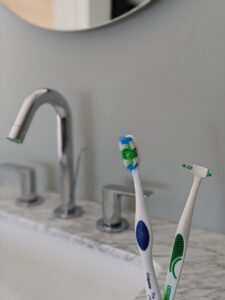
In her fascinating and well-researched book, Good Habits, Bad Habits: The Science of Making Positive Changes That Stick, psychologist Wendy Wood offers a couple definitions of habits. My favorite is the short version – “Automaticity in lieu of conscious motivation.”
The ideas of automaticity and relieving the conscious mind of extra effort are the keys to why habits can be so powerful.
We can all identify days where we are simply mentally exhausted at the end of the day. We may feel like we haven’t “done” much but our brains kind of hurt from the day. But have you ever thought, “Wow, all the habits that I used today really wore me out.” Not the activity of the habits like a vigorous workout, but executing the habits themselves. Well, that’s silly, right? Of COURSE I brush my teeth – that’s easy. But our parents could tell stories that show it wasn’t ALWAYS easy.
The difference here is what is conscious and what is unconscious. When we are focused on learning new material, adjusting to circumstances, solving problems and just getting along with colleagues, we engage the executive function of our brain. These are occurring in the highly advanced prefrontal cortex at the front of our brains that distinguishes us from other large mammals that are lacking said cortex. Our bandwidth for executive function is rather limited. Yes, we may try to multi-task, but you can’t really solve two separate problems simultaneously. And it consumes a lot of energy, so the more decisions we make, the more exhausted we become.
Habits, on the other hand, happen in our subconscious mind. Yes, we’re aware that we’re brushing our teeth, but we didn’t have to think to remind ourselves to do so. Rather, there is a cue that triggers us to do something in response. So when it’s time to go to bed and we set in motion the tasks to get ready to bed, we automatically brush our teeth, put on our pajamas, set the alarm clock or whatever your bedtime habits are.
The point here is that if we can implement good habits that are naturally carried out without conscious thought, we reduce the number of decisions that the brain has to make. This frees up that executive capacity for higher-value decision making than whether or not to brush our teeth. A bit of investment of that executive function up front to establish habits can pay huge dividends. The only question is how to best use all of that time that is freed up?